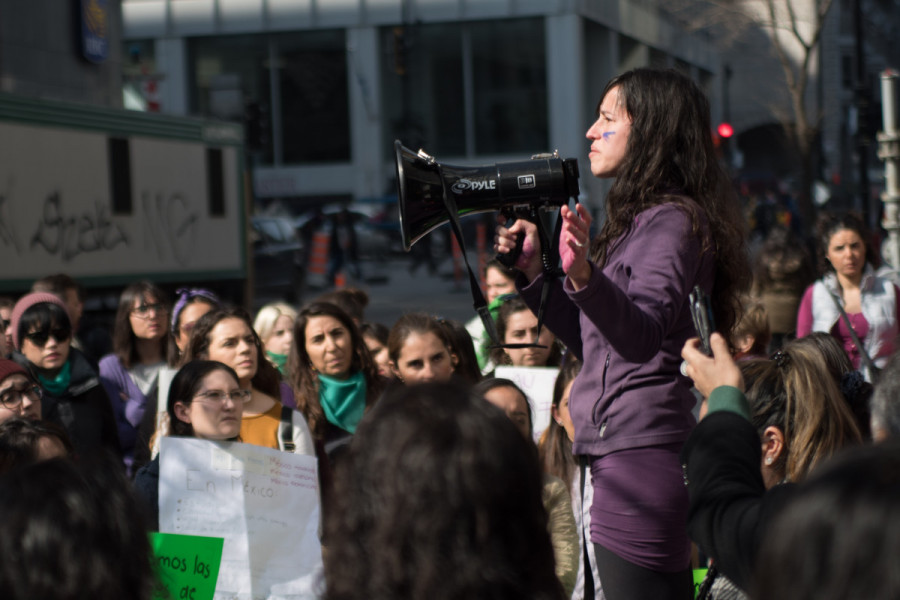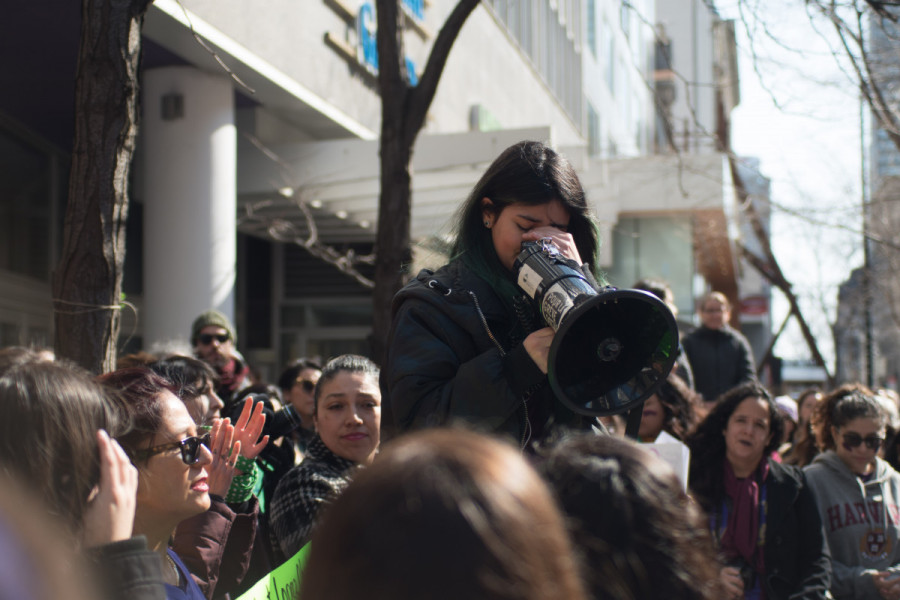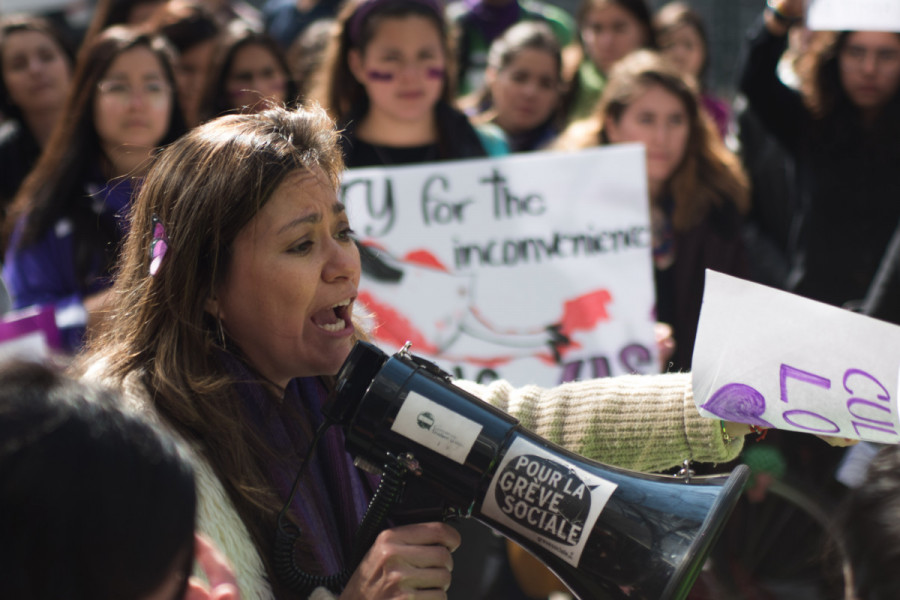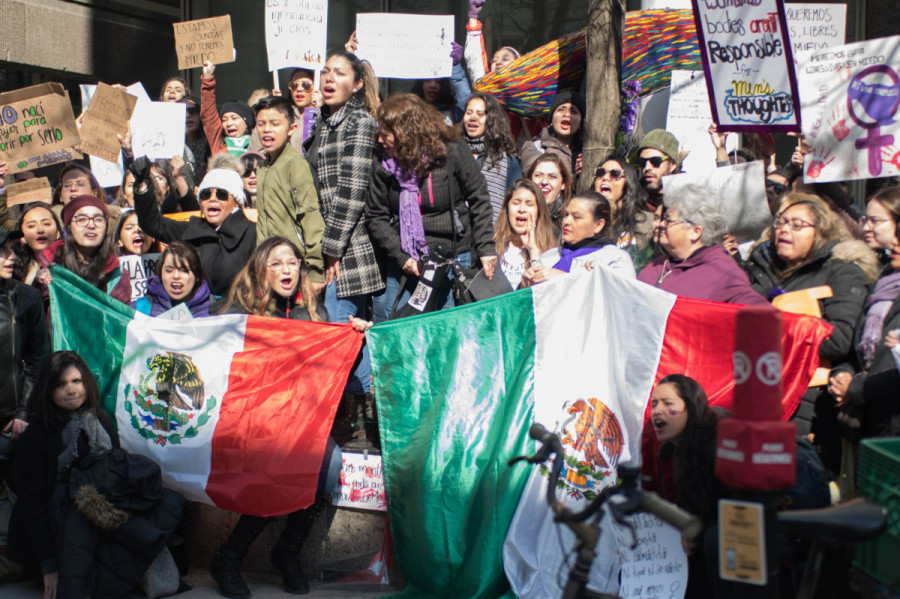Hundreds Gathered to Protest Femicide in Mexico
Emotional Testimonies Laid Out in Front of Montreal’s Mexican Consulate
“No estas sola,” Spanish for “you are not alone,” was the chant constantly heard across Peel St. as nearly 200 people gathered in front of the Consulate General of Mexico in Montreal to share emotional testimonies of sexual assault and femicide, the intentional killing of women.
“We are here to show to the world what is going on in Mexico,” said Margarita López, Mexican activist and member of Buscando Cuerpos (Searching Corpses). Her daughter, Yahaira Guadalupe Bahena López, disappeared on April 13, 2011. She was killed in Tlacolula de Matamoros, Oaxaca, Mexico.
Margarita Lopez’s story was only one among many powerful testimonies shared by the protesters who spoke out against the violence inflicted on women in Mexico.
“In Mexico, too many women die because they are women. That’s the problem,” said Tzintli Chavez, Mexican student at McGill University and co-organizer of the event.

On average, 10 women are killed every day in Mexico, according to the Secretary General of National Public Security. Data published in January on violence committed against women shows that alleged cases of femicide have doubled since 2015.
March 9, following International Women’s Day, thousands of women recused themselves from work, school, and any public space as part of a nationwide strike to fight the increasing femicide and general violence against women. The message? To show what a world without women would look like.
“Violence in Mexico is going up, but for women especially. We need a change of society,” said Claudia Gómez Juncal, a Mexican woman and one of the event’s organizers.
The event acted as an open mic where anyone was free to stand up and voice their indignation. Some shared songs, chants, and poems, while others shared impactful stories.

The general sentiment was the same—to denounce the current increase in hate crimes.
“I want you to be the voice for the people who can’t speak,” said Angela Penaflor, a 15-year-old activist with Mexican roots.
While being a solidarity demonstration, the event passed on a message to their homeland’s government—take responsibility for the issue and take the necessary measures.
A letter, written by co-organizer Claudia Gómez Juncal, was read and addressed to Alejandro Estivill Castro, General Consul of Mexico in Montreal. The message, representing the general feeling of the protesters, implored him to use his position to help the cause.

“In Canada, we have learned that living without fear and to live freely is a privilege. If not, it’s a fundamental right every human being must have,” said an extract of the letter. “It is precisely the reason for which we can’t—nor do we want to—distance ourselves from the frequent terror every single one of us experiences in our country.”
Castro made a couple of appearances during the event and listened attentively to some of the testimonies. He wore a purple tie—the same colour worn by activists and a symbol for the anti-femicide movement. After receiving the letter, he addressed the crowd by expressing his empathy for the movement.
“I receive this letter with all the sensibility that it deserves and I promise that it will be treated with all the energy that you all have shared here,” said Castro. “As a Mexican, I feel like everything I’ve heard here has all the reasons to be presented and that change has to be done in our country.”
Protesters hope this demonstration will bring the movement a step closer to bringing security for everyone and to stop gender crimes.
“We are all human,” said Penaflor. “We should not treat each other like shit.”







